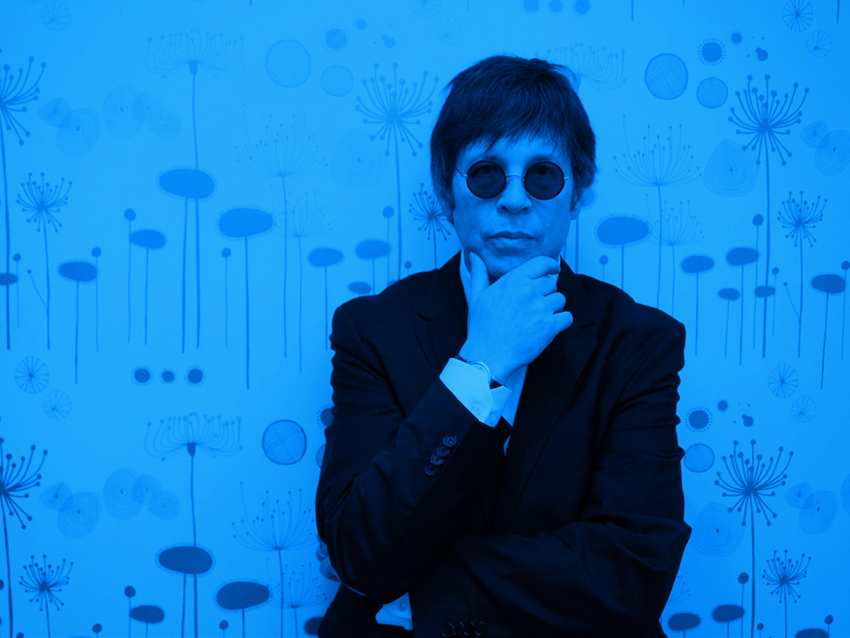
Elliot Easton's top 5 tips for guitarists
Elliot Easton wasn't really looking to form a new band. Following a 2011 Cars reunion, the venerable guitarist put together his own outfit, the twang-heavy Elliot Easton's Tiki Gods. But when his old friend, Chesterfield Kings guitarist and music author Andy Babiuk, called and said, “What do you think about doing a band with me, you, Clem Burke and Wally Palmer from The Romantics?” Easton said sure.
"I didn't think I should say no," Easton says, "but the truth is, I didn't think anything would come from it. Clem and I had talked about doing stuff in the past, but the scheduling was never right. That kind of thing happens a lot. But then I learned something important about Andy: When he says he's going to do something, he actually does it. I give him full credit for getting this band together."
Babiuk corralled the foursome, now christened The Empty Hearts (the name came from Steven Van Zandt's secret stash of unused band monikers), into a studio at his home base of Rochester, New York, for what Easton calls "one of the easiest and most fun times I've ever had making a record. Ed Stasium came in to produce, which was a fantastic coup. He became like the fifth member of the group. We knew that we could just focus on the music because we totally trusted the guy in the control room."
The band's recently released self-titled debut album, a winning combination of British Invasion melodicism and '60s garage-rock spunk, features some of the last recorded work by Ian McLagan – the legendary Faces keyboardist passed away earlier this month. "We were so lucky to have Ian come in and play," says Easton. "There he was, putting his classic Hammond organ and Wurly piano lines on our music. If anybody was going to understand our sound, it was Ian."
Although he possesses a considerable collection of lefty guitars, Easton brought only one instrument to Rochester – an SG Standard. He had his reasons for traveling light: In addition to his other activities, bandmate Babiuk also owns and operates the boutique guitar shop Andy's Fab Gear. "Andy brought a couple of goodies for me to work with," Easton notes. "There was a really nice lefty Custom Shop Strat, a ’52-style Tele and a Martin D-18. Andy has hundreds of guitars available, but most of them are righty. I can't complain, though – everything Andy brought in was terrific and sounded great."
You can purchase The Empty Hearts' debut album on iTunes and at Amazon. On the following pages, Easton runs down his top five tips for guitarists.
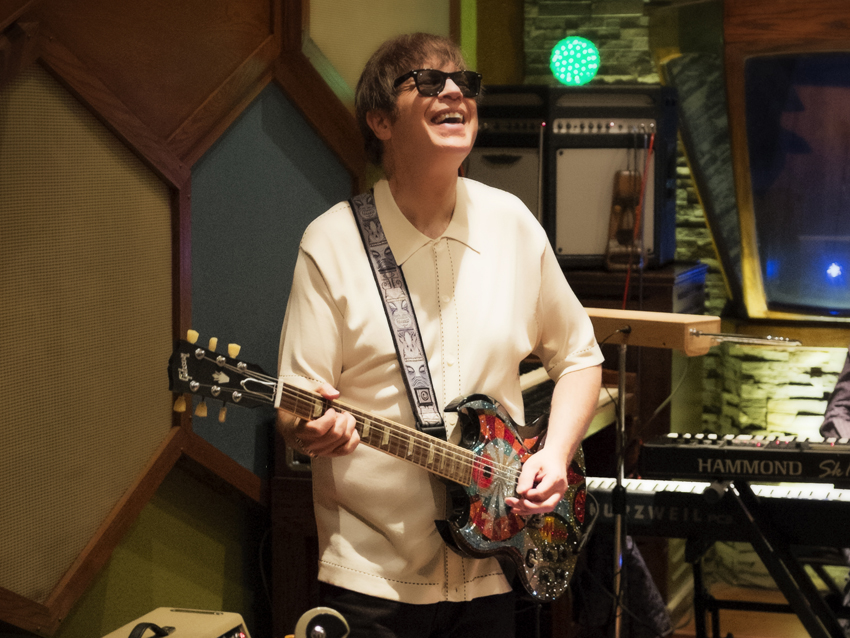
Be eclectic in your listening
“Listen to music other than the genre that you specialize in. Try and take from that and bring it to your own music. You’ll be surprised at how certain licks can sneak into your playing, things you might never have imagined.
“I’ve read a lot of comments from people about my own playing, and it's nice when they say that some of my solos are unique. I think it’s because I’m pretty eclectic in my tastes, and I bring that to my rock and pop playing. People know that I’ll put in a country lick or a jazzy passage or an R&B lick, but it all works, and it all sounds like me. It’s because I keep an open mind, and I’m a fan of lots of different kinds of music.
“It’s pretty simple: If you only listen to one thing, you’re only going to sound like that one thing; your playing will be kind of one-dimensional. So check out as much music as you can. You might make some new discoveries, and your playing will certainly benefit.”
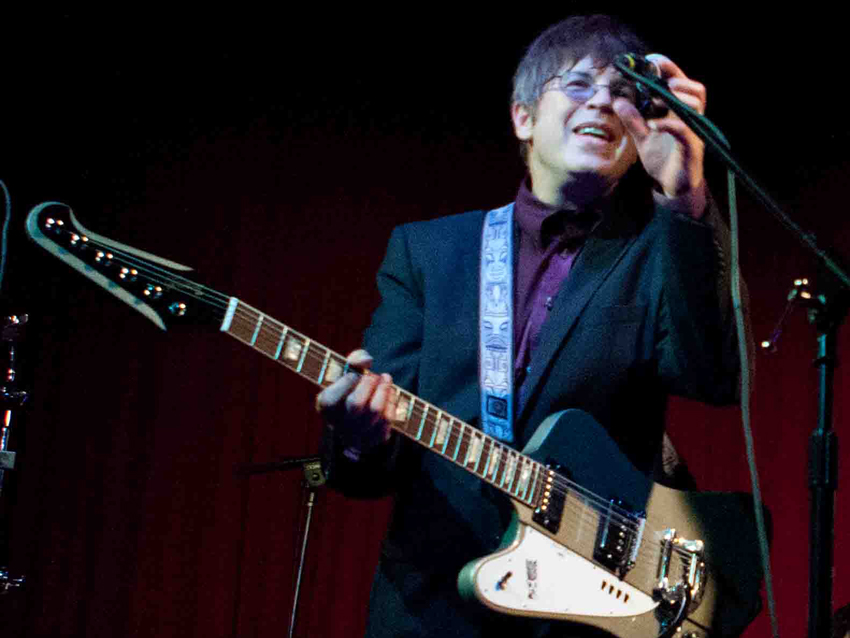
Vary your TV-time playing
“It’s one of our favorite pastimes, sitting in front of the TV and playing guitar. We all do it – it’s fun, and it’s a great way to keep the fingers limber without really working too hard. But a lot of guitarists end up playing the same pentatonic boxes over and over again without really adding anything substantive to their playing.
“Don't get me wrong: It's OK to stretch out your fingers and play scales and that sort of thing, but if that's all you do, what happens is, when you go to play with other people, those same patterns are set in concrete. My way to battle that is to play melodies and songs instead of that same old pentatonic box. Play melodies to old tunes – anything that pops into your head. Even if it’s something you hear on TV, an old theme song or something, it’ll take you somewhere new.
“Playing in front of the TV can become a habit, but there’s no reason why it has to be this stale routine that puts you in a rut. It can be an activity that’s creative if you push yourself into a new zone.”
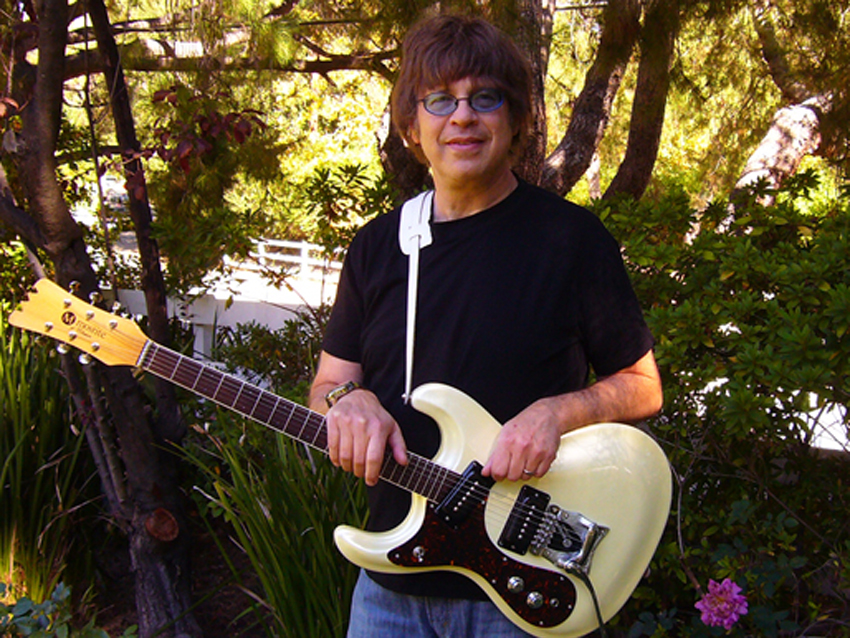
Get the best guitar you can afford
“This goes out to beginners and intermediate players. Maybe younger guitarists don’t have this problem, but if you’re from my generation, you remember your first guitar as being virtually unplayable. There were all sorts of problems, like the strings being too high off the fingerboard. A bad guitar could actually discourage you from playing.
“Get the best guitar you can afford. Right now, there’s more inexpensive, well-made and very playable guitars for beginners than ever before. It's not like it was back in the day when you had Harmonys and Kays and the earliest Japanese imports – a lot of them were quite inferior.
“That’s all changed now. There are so many good guitars for reasonable money, so there’s no reason why you can’t get something that plays well and can really inspire you to practice and better yourself on the instrument. Buy once, buy it right, and don’t mess around with something that’s crummy.”
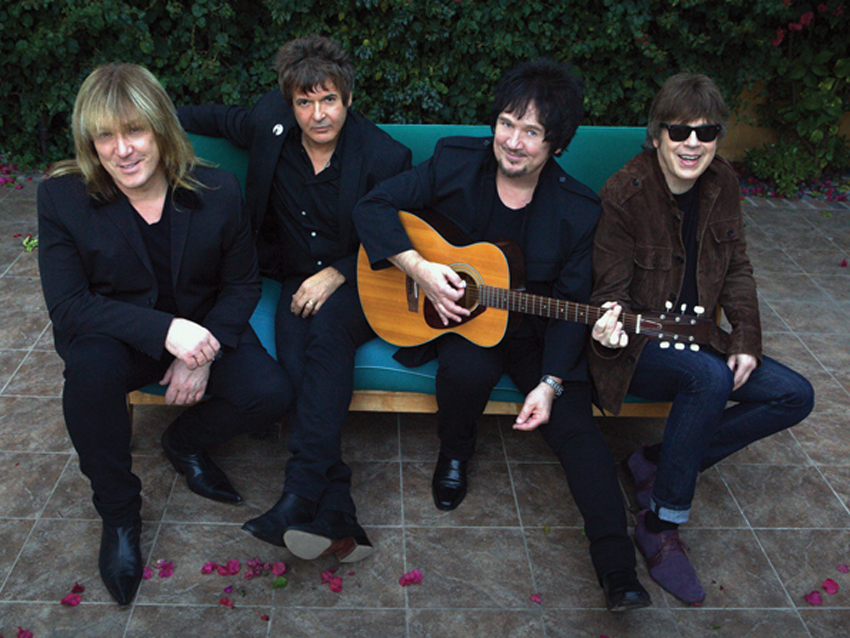
Respect your fellow band members
“If you get in a band, you have to treat your fellow band members as you would want them to treat you. Show up on time to practice, have your gear in working order, and be ready to get to work. Having consideration for everybody else is very, very important. Nobody wants a diva or a prima donna in the band.
“This is true no matter what level you’re at. If you’re a touring musician, whether you’re traveling by bus or even by plane, show up a few minutes early. Nobody wants to spend time looking for you; they’ve got their own stuff to worry about.
“Also, try to keep a positive attitude. No matter what goes on during the other 22 hours in the day, for that two hours you’re on stage, leave it all behind you. If you had an argument with the lead singer, or if your breakfast arrived cold, forget it. Bring you’re A-game with you every time you play a show. Anybody who comes to you play deserves your best. Whether it’s for 10 people or 10,000 people, you should give them the same show. That’s a given, I think.”
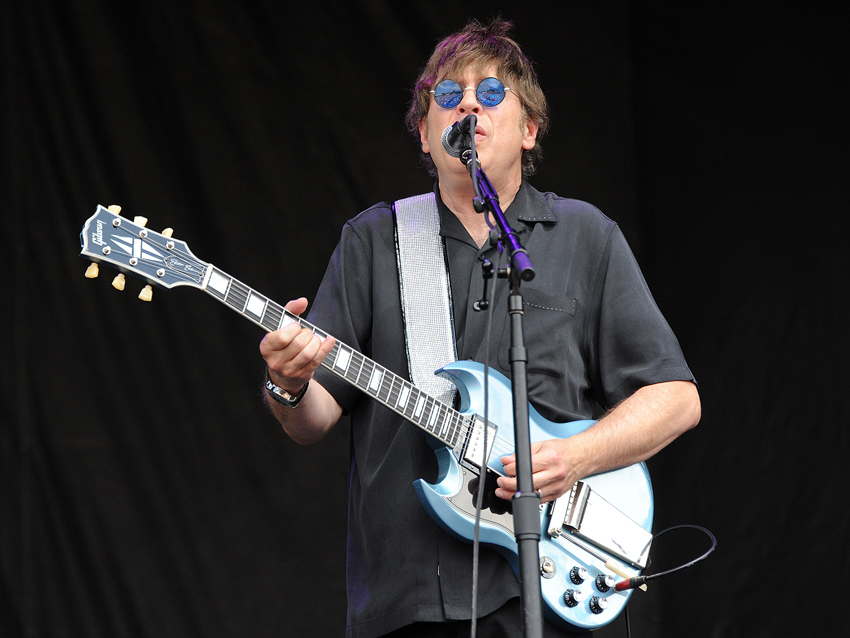
Have a strategy for solos
“Over the years, people have been very complementary to me about my playing on Cars records. They seem to find my solos to be different from the way that other people solo. Here’s some of my strategies for how I came up with some of that stuff.
“This goes back to breaking patterns and boxes. When I’ve come up with solos, I’ve always tried to go somewhere new. My whole idea of a solo in a pop song is that it should be a little song within a song. I always wanted my solos to be something you could walk away humming.
“I would come up with solos away from the guitar. A lot of times, I’d have a tape of the backing track, and I’d try to sing something over it. If I came up with something good, then I’d sit down with the guitar and figure out what I just sang. I found that by first taking the guitar out of the equation and just going from my heart to my brain, I was able to come up with things that I never could if I was simply depending on my fingers.
“The same thing goes for tones and effects. When I’m in the studio working on a solo, I almost never reach for a guitar or an amp or a pedal until I have a sound in my head. You could have 10 amps, 40 pedals and 20 guitars, but you’ll spend all of your time twiddling with knobs and getting nowhere. But if you close your eyes and try to hear the sound you’re going for, nine times out of 10 you’ll go for the right guitar, the right effect and the right amp to recreate the sound in your head.
“The lesson is to have a concept in mind before you even pick up the guitar. What’s in your head will always be special and unique, and once you find it, then you can figure out the tools you'll need.”
Joe is a freelance journalist who has, over the past few decades, interviewed hundreds of guitarists for Guitar World, Guitar Player, MusicRadar and Classic Rock. He is also a former editor of Guitar World, contributing writer for Guitar Aficionado and VP of A&R for Island Records. He’s an enthusiastic guitarist, but he’s nowhere near the likes of the people he interviews. Surprisingly, his skills are more suited to the drums. If you need a drummer for your Beatles tribute band, look him up.
